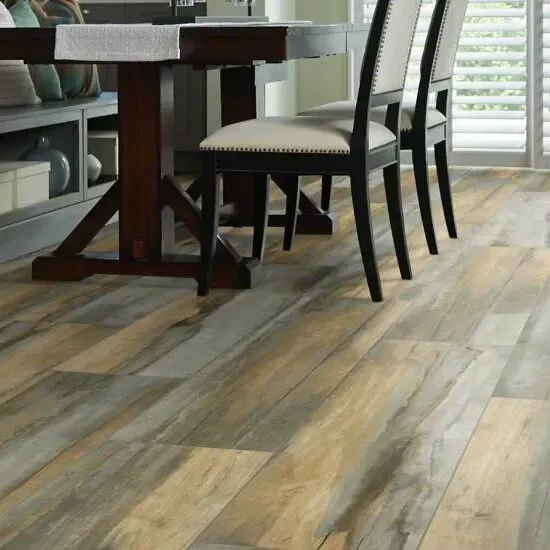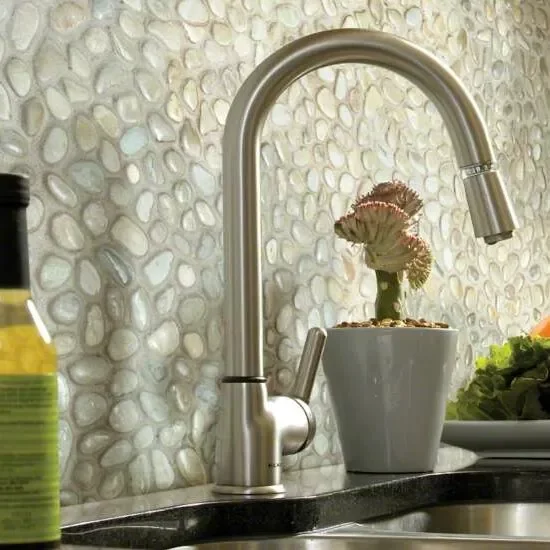Apply in minutes. Quick credit decisions. Use your account right away!
Ceramic Tile & Natural Stone
in Fayetteville, NC
Ceramic tile is molded from clay, then pressed and heated under extreme pressure to form a rigid material. There are two main types of ceramic tile.
- Non-porcelain ceramic tile is the traditional type, made from a combination of white, red and brown clay, sometimes mixed with other minerals.
- Porcelain tile is similar, but also contains up to 50% feldspar, a type of crystal which, when heated and pressurized, forms a glasslike material that gives porcelain its extreme hardness and durability.
Either type of ceramic tile can be manufactured to be glazed or unglazed. Glazed tile is fired a second time to give the clay tile a glass-like, often colored surface coating. This gives the tile the added benefit of increased resistance to stains, scratches and moisture.
Natural stone tile is also produced from natural materials, including granite, marble, limestone, travertine and slate.
- Granite is a dense, volcanic rock with a distinctive speckled appearance. It is impervious to scratching and is excellent for high-traffic areas such as kitchens.
- Marble is a metamorphic stone well known for its elegant appearance. It’s more porous, recommended for decorative use rather than practical purposes.
- Limestone is a sedimentary rock with an earthy look, less dense than other stone. It’s more susceptible to damage, but is porous and can be stained different colors.
- Slate is an incredibly dense, incredibly durable option that comes in many darker tones – an excellent choice for high-traffic areas.

Where Can Tile be Installed?
Tile is a versatile design material, well suited to many areas of the home. You’ll commonly find it in kitchens and bathrooms, although it can technically be installed anywhere.
When installing tile flooring, keep in mind the type of tile you’re working with. Ceramics, especially porcelain, are often more durable than stone, especially when glazed. If you do prefer stone, make sure you choose an appropriate type for your space. Porous rock such as limestone, for example, won’t work well in bathrooms or kitchens where liquid spills are common.
Tile can also be applied to outdoor areas and open-air environments. The same considerations apply – avoid porous materials and slippery surfaces.
Finally, tile can be used decoratively in other areas of the home, such as on walls and as backsplashes to highlight aspects of your design. Learn more about the versatility of tile as a flooring and design material when you chat with the experts here at Webb Carpet, either in-store, over the phone or online! We can’t wait to hear from you.
Tile Care & Maintenance
Natural stone and tile flooring is an investment that adds to the beauty and value of your home. We've assembled some quick tips in order to protect your flooring for years to come. Make sure to follow all regular care and maintenance tips as described by the manufacturer.

FEATURED TILE BRANDS




